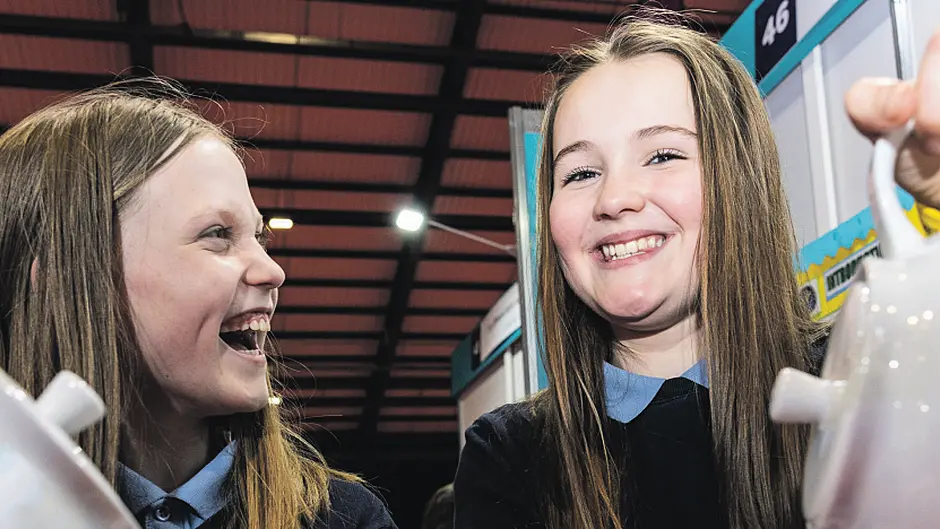WHY do we scald the pot when we’re making tea?
That’s the question that two sixth-class pupils in Lisavaird National School set about answering and which earned them a coveted place at the ESB Science Blast, the RDS Foundation’s flagship science and technology programme in the RDS, Dublin earlier this month.
Mia Kwoka and Ethel Hayes, both aged 12, conducted a survey and found that 58.7% of people scald the pot to keep tea warm for longer, while 20.6% do it to give it a higher temperature.
‘We put it to the test, and found that scalding the pot will make your tea between three to four degrees hotter, but a scalded pot will lose its heat just as fast as a non-scalded one,’ said Mia.
Their next test was to find out how to keep tea hotter for longer, and maximise the efficiency of an insulated cup by minimising heat loss.
They tested eight combinations of insulation on the bottom, top and side of a cup.
‘We concluded that while insulating the top of the cup is most efficient of the three, a fully insulated cup dramatically reduced heat loss with the tea only losing 8% of its heat over 10 minutes compared to 26% of heat loss in an uninsulated cup,’ said Ethel.
Ireland is the second largest tea consumer of tea in the world, and both Ethel and Mia are tea drinkers themselves. Interestingly, Ethel’s household scalds the pot, but Mia’s doesn’t!
The pupils, helped by their teacher Gerard O’Donovan, took their idea to another level by working with Leaving Cert construction students from Clonakilty Community College.
‘We found that insulating houses is like insulating water,’ said Mia.
They learned that maximising insulation in floors and walls can result in a passive house, which requires little to no heating, which means less use of fossil fuels, energy savings, and a positive impact on the climate.
All pupils at Lisavaird NS raised a cup of tea to toast Mia and Ethel’s success at the event!
Lisavaird NS was one of only four schools from Cork showcased at the ESB Science Blast, a Stem-focused educational programme involving whole classes investigating the science behind simple questions.
The judging was non-competitive and aimed at growing pupils’ interest and passion for Stem.
Over 55,000 children have participated in ESB Science Blast to date, making it the largest primary school programme on the island of Ireland, and one of the largest programmes of its kind in Europe.
‘Through the programme, children of all backgrounds and abilities are developing life skills that will help them to become innovative and creative problem solvers, as well as active, informed and engaged citizens.
I always look forward to seeing the energy, the excitement, and the celebration of curiosity at ESB Science Blast,’ said Paddy Hayes, chief executive of ESB.









